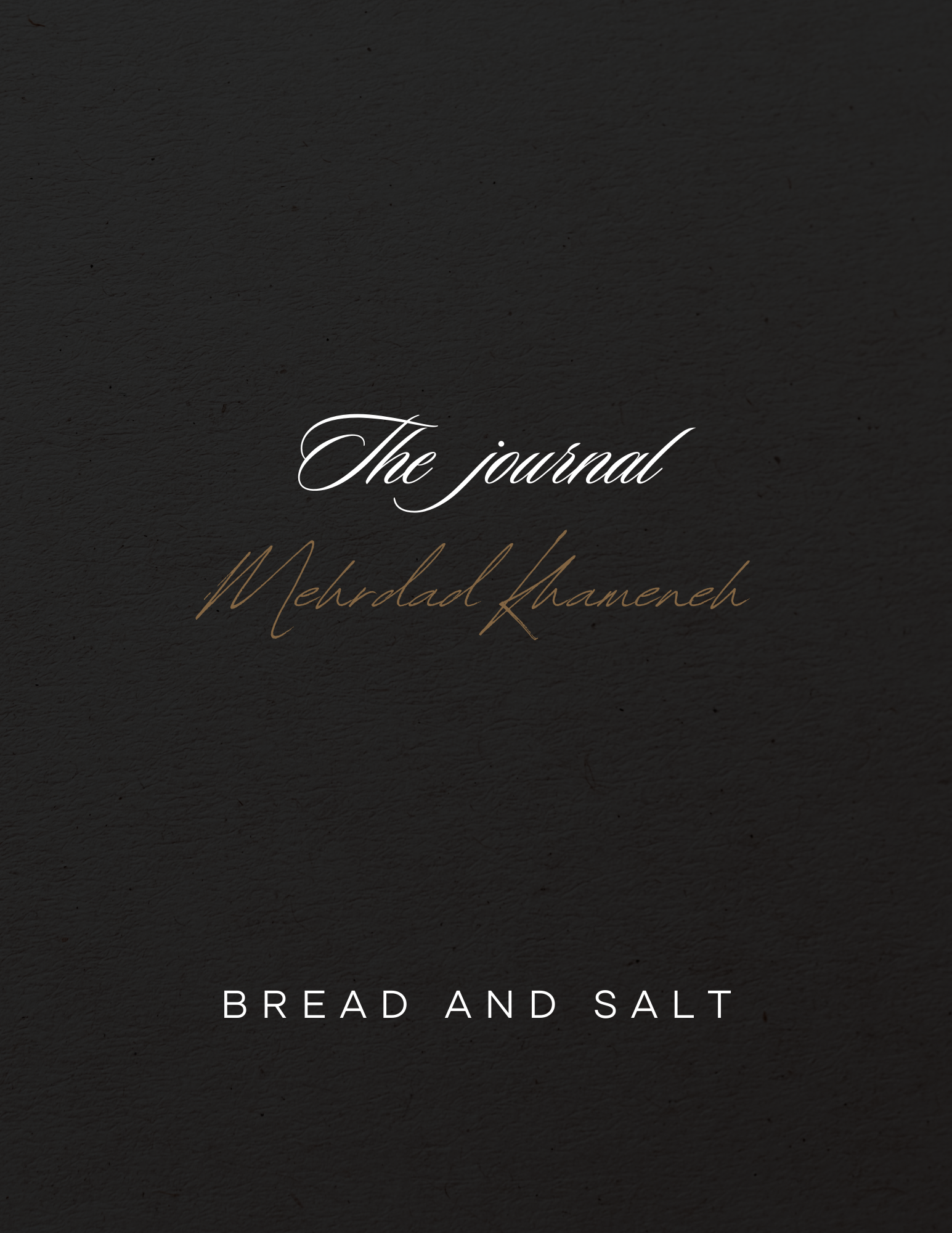Bread and Salt

Mr. Bahman is from Kermanshah(1) and a longtime resident of Tehran. For over thirty years, my father had his hair cut at his barbershop. Tucked away in a narrow alley, "Bahman’s Barbershop" was more than just a place for haircuts—it was a familiar gathering spot for old friends and loyal customers. Everything about it spoke of its history, from the worn-out chairs to the large framed photo of Gholamreza Takhti, the legendary Iranian wrestler, on the faded wall.I used to go to a different barber, and every time my father saw me, he would shake his head. “Where did you get your hair cut this time? They did a terrible job. Why don’t you go to Bahman?” He kept saying it until, one day, when it was time for him to get a haircut, we went together.My father entered with warm greetings, and Mr. Bahman embraced me like a long-lost relative. “Your father always talks about you. I was eager to meet you,” he said.He cut my father’s hair first, then mine. The entire time, the two of them never ran out of things to talk about—from world politics to complaints about the ever-growing crowds in the neighborhood. When it was time to pay, I watched my father put a ten-thousand-toman bill into Mr. Bahman’s palm for both of us. At the time, the standard price for a haircut was at least thirty thousand per person. I said nothing. Once we left, I asked my father, “Why did you pay so little?”“I didn’t pay little,” he replied. “Five-thousand-toman each. Like always.”My father’s like always stretched back decades—to the time of the Allied invasion of Iran in September 1941.Curious, I dropped him off at home and returned to see Mr. Bahman. Another round of warm greetings, then I asked about the five-thousand-toman payment. That’s when I realized my father had been paying the same rate for years, and Mr. Bahman had never said a word.With a humble smile, he said, “This isn’t about money. Your father is like my own. We’ve shared bread and salt. Honestly, I feel embarrassed taking anything from him.”It’s been years now since my father passed, but I’ve become a loyal customer of Bahman’s Barbershop. Every month, I return—if only to make up for my father’s unpaid dues. Bahman still has no fixed rate for old acquaintances; his earnings come from friendship, community, and the tradition of breaking bread together.And, as always, we discuss world politics and everything in between.Bread and salt—it’s no small thing.
Note: Sharing bread and salt is an ancient custom, prevalent in the Middle East as well as parts of Europe. The act of eating together signifies a bond between two sides, expressing gratitude, friendship, and trust.
1- Kermanshah is a city in western Iran, known for its rich history, diverse culture, and stunning natural landscapes. It has deep historical roots, with archaeological sites like Taq-e Bostan and Bisotun, both of which feature ancient inscriptions and carvings dating back to the Achaemenid and Sassanid eras.The city is also famous for its vibrant Kurdish culture, delicious cuisine, and traditional music.
